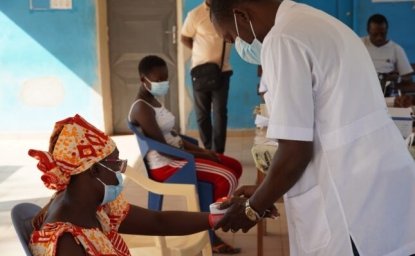Almost 23 million infected and 800,000 deaths in the world cannot remain a simple numerical record of the most lethal pandemic in the last hundred years. We have to stop as humanity and understand the lessons that COVID-19 is leaving us. At least, there are two very clear lessons.
First of all, this will not be the last pandemic. We knew from H1N1 that another virus would come, and today we know that the coronavirus will not be the last scourge that we will have to face. The second lesson is interdependence. We are part of a global community and pandemics know no borders. What affects a country, in health and economic terms, will end up impacting the rest of the world.
It is therefore imperative to recap, document, and analyze what worked or and what did not, in order to anticipate a route to be followed in the future. It is an exercise of accountability of international institutions, and national and local governments. And reciprocity. There is a moral obligation to share accumulated knowledge and experiences, as well as to make treatments and vaccines available to all.
In this spirit, the World Health Organization announced the creation of an Independent Panel on Global Preparedness and Response to the COVID-19 Pandemic, led by former New Zealand Prime Minister Hellen Clark and former President of Liberia -and Nobel Peace Prize winner-, Ellen Johnson Sirleaf, women of proven competence and integrity.
At the national level, two countries have taken the initiative. In Spain, 46 scientific-medical societies, representing more than 100,000 health professionals, have demanded through a letter published in The Lancet magazine an independent external audit on the management of the pandemic in that country. And in the United Kingdom, a total restructuring of public health services that had suffered severe cuts is anticipated. It is not trivial that in both countries the official response was highly questioned given the scale of the tragedy. Hence the relevance of these initiatives, promoted by civil society, which should be imitated by others, particularly China, where the virus originated, and those where there have been more cases and more deaths, like the United States, Brazil, and Mexico.
Sooner or later all governments will face the political cost at the polls. But there is already evidence of citizen judgment on their performance. The Covid19-Survey, conducted in April by the universities of Oxford, Harvard, MIT, among twelve others, was prescient. We still did not arrive at the current death figures; however, the distrust was similar towards the governments of the United States, Brazil, and Mexico. To paraphrase Rahm Emmanuel, we cannot waste this crisis without processing the lessons learned. It is a duty to future generations to avoid a greater tragedy.
This article was originally published in Spanish on El Heraldo de Mexico...
Author


Mexico Institute
The Mexico Institute seeks to improve understanding, communication, and cooperation between Mexico and the United States by promoting original research, encouraging public discussion, and proposing policy options for enhancing the bilateral relationship. A binational Advisory Board, chaired by Luis Téllez and Earl Anthony Wayne, oversees the work of the Mexico Institute. Read more

Explore More
Browse Insights & Analysis
Russia’s Security Approach to Public Health

WIPO is AWOL


